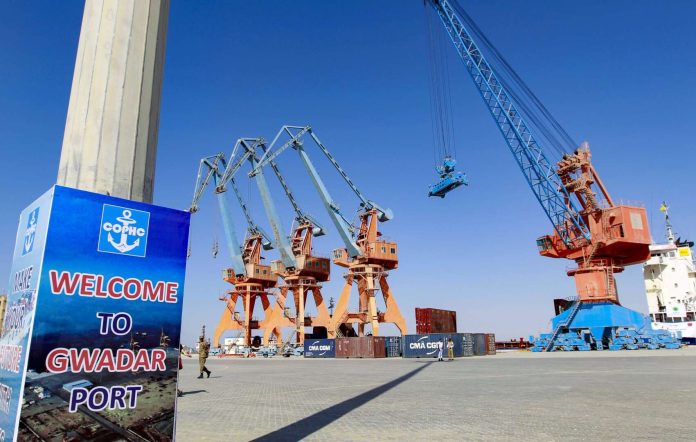According to a government-commissioned feasibility study, Beijing’s plan to build a $58 billion railway system connecting Pakistan with Western China should move forward because of its strategic importance, the South China Morning Post said on Thursday.
According to the study, which was created by researchers at the government-owned China Railway First Survey and Design Institute Group Co Ltd, the proposed railway project would link the Chinese area of Kashgar to the Balochistan coastal city of Gwadar.
The proposed project, which is China’s largest Belt and Road Initiative transport project, has the potential to transform trade and geopolitics throughout the Eurasian continent, according to the feasibility study, which was directed by the institute’s deputy director of capital operations Zhang Ling.
The 3,000 km Pakistan-China railway, according to the study, will circumvent the Strait of Malacca and lessen reliance on the South China Sea by connecting China’s western areas with the Arabian Sea.
Additionally, “connections with other transport networks, i.e. in Iran and Turkey, would also provide a more direct route to Europe for Chinese goods, while Pakistan is forecast to get a much-needed boost from the improved infrastructure and easier trade with China,” according to the report.
The scientists emphasised that the host nations had contributed a sizable percentage of the funds for the majority of BRI transport infrastructure construction projects, and that Chinese investment was substantially smaller.
Pakistan’s key financial backers include longtime friend China since the South Asian nation’s foreign exchange reserves are still at dangerously low levels.
China extended a another $2 billion loan to Pakistan last month, giving respite during that country’s severe balance of payments crisis. Pakistan had already refinanced $1.3 billion from the Industrial and Commercial Bank of China Ltd (ICBC) in three instalments. At the end of February, Pakistan also received $700 million from the China Development Bank.
Pakistan is now one of the nations experiencing a debt crisis as a result of months of political and economic unrest that were made worse by devastating floods last year and record inflation. The bailout agreed upon in 2019 includes a delayed $1.1 billion loan tranche that has been the subject of protracted negotiations with the International Monetary Fund (IMF).


